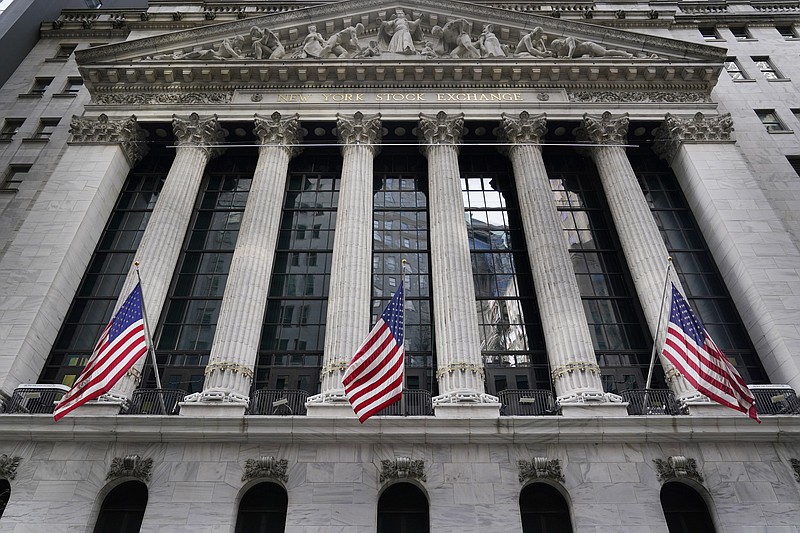Technology companies led stocks to more gains Thursday on Wall Street, nudging the S&P 500 to an all-time high for the third time this week.
The benchmark index rose 0.4% and is on track for its third-straight weekly gain. Stocks within the S&P 500 were about evenly split between gainers and losers, with technology companies driving much of the rally. Those gains were tempered mainly by a slide in energy stocks and real estate companies.
The S&P 500 rose 17.22 points to 4,097.17. The index also set record highs on Monday and Wednesday. The Dow Jones Industrial Average gained 57.31 points, or 0.17%, to 33,503.57. The tech-heavy Nasdaq composite climbed 140.47 points, or 1%, to 13,829.31.
Small company stocks, which have been outpacing the broader market this year, also had a good showing. The Russell 2000 index of smaller companies picked up 19.54 points, or 0.9%, to 2,242.60. The index is up 13.6% so far this year, while the S&P 500, which tracks large companies, is up 9.1%.
[CORONAVIRUS: Click here for our complete coverage » arkansasonline.com/coronavirus]
Bond yields, which had been steadily ticking higher, continued to inch back from the highs they hit earlier in the month. The yield on the 10-year U.S. Treasury note, which influences interest rates on mortgages and other loans, fell to 1.63% from 1.65% late Wednesday. It had been as high as 1.75% on Monday.
That pullback in yields took some pressure off technology stocks, which have slipped over the past few months as yields jumped and made the shares look pricey. The sector also has seen choppy trading as investors shift more money into companies that stand to benefit from the economic recovery.
"We expect rates to rise because the economy is looking better," said Sylvia Jablonski, chief investment officer at Defiance ETFs. "I don't think that the 10-year [Treasury yield] moving around in the short term is really an issue for the market."
Technology stocks were among the biggest beneficiaries as bond yields cooled off. Apple rose 1.9%, Microsoft gained 1.3% and Amazon added 0.6%.
Investors are showing cautious optimism about the economic recovery, especially in the U.S., where vaccine distribution has been ramping up and President Joe Biden has advanced the deadline for states to make doses available to all adults to April 19.
But it's clear the economy has much to do when it comes to recovery. The number of Americans who filed for unemployment benefits last week rose again last week, as many businesses remain closed or partially shut down because of the pandemic.
Much of the economy is recovering, but employment needs to pick up in order for a full recovery to occur, analysts say. The market likely will continue to be choppy as investors shift money to some of the sectors and companies hardest hit by the pandemic. They are also weighing signs of economic growth against the lingering threat of the virus.
"We're still at the mercy of the virus and the race between the virus and vaccines and getting a sense of the reopening of the economy," said Liz Ann Sonders, chief investment strategist at Charles Schwab.
In remarks Thursday to the International Monetary Fund, Federal Reserve Chairman Jerome Powell said a number of factors are putting the nation "on track to allow a full reopening of the economy fairly soon."
On Wednesday, the market largely shrugged off the release of minutes from the Federal Reserve's latest meeting on interest rates.
The minutes revealed that Fed officials were encouraged last month by evidence the U.S. economy was picking up, but they showed no sign of moving closer to ending their bond purchases or lifting their benchmark short-term interest rate from nearly zero.
